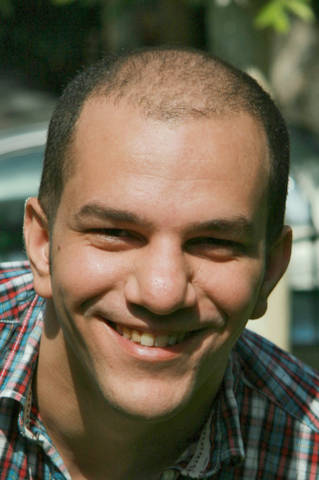‘Collaborator!’ – a charge that has plagued Egypt
By Osama Diab
Egyptians are routinely accused of being in league with foreign forces, from the US to Iran, but this propaganda is wearing thin.
15 September 2010
In the centuries after Egypt's last native ruler, Nectanebus II, was driven out by the Persians, Egypt was conquered and occupied by almost every major colonial power. It was only in 1952 that General Mohamed Naguib's successful military coup managed to overthrow the monarch, ending British influence and restoring sovereignty to the land of Egypt.
Almost 60 years later, this colonial legacy still haunts the country. Opponents of political and social change bank on a deep-seated fear of foreign influence to tighten their grip on power by accusing everyone who promotes an alternative to them of collaboration.
The “treason” card can be used against anyone and everyone. According to Egyptian conspiracy theorists, liberal politicians are probably American agents with a western agenda. Similarly, Islamists are accused of getting orders from Iran, Hamas, Hezbollah, or all of the above.
Mohamed ElBaradei, former director of International Agency for Atomic Energy and potential presidential candidate, is supposedly both an Iranian and American agent. Ayman Nour, a liberal Egyptian politician who was jailed for what many believe was the “crime” of challenging Mubarak in the 2005 presidential elections, is America's boy in Egypt.
A ruling National Democratic party MP, Hassan Nashat al-Kassas, who was condemned by human rights organisations for calling on the police to shoot pro-reform demonstrators, said during a parliamentary discussion last year on medical aid to Gaza (in Arabic): “I used to believe that we have a patriotic opposition. However, it turned out that they only work for the interest of Egypt's enemies.”
Likewise, Muslim preacher, Khaled Abdallah, attacked ElBaradei by also accusing him of collaboration. He implied that he is applying a pro-American and anti-Islamist agenda. He also warned people against supporting ElBaradei because by doing so they would be fighting God and His messenger. He asked his audience to refuse to recognise anyone who “arrives on the back of American tanks”.
Ironically, ElBaradei has long been attacked by many in the US and Israel for being too lenient with Iran. The US was also the only country to oppose a third term for ElBaradei as the head of the IAEA due to his position on the war in Iraq.
After portraying ElBaradei as a hero for years after winning the Nobel peace prize, Egyptian state-run media launched a smear campaign questioning his loyalty to the motherland once he appeared to challenge the 29-year-rule of Mubarak. A state-run newspaper falsely accused him of holding Swedish nationality a few days after he announced he might run for presidency under certain conditions. State-run media were also trying to wrongfully promote the idea that he gave the green light to America to invade Iraq. Pro-government newspapers printed the same photo of him with the US ambassador over and over again to enforce that impression.
What is more, Egypt's government always tries to give the impression that an alliance made up of Qatar (represented by the al-Jazeera TV network), Iran, Hezbollah, and Hamas are trying to destabilise the country.
Destabilising a country would certainly need local agents. It is clear al-Kassas's remark about the opposition implies that members of the Muslim Brotherhood, the main opposition bloc in Egypt's parliament, are being recruited by the Iranian alliance.
Needless to say, trying to associate alternative thought with danger is a strategy long used by religious conservatives to prevent social change and by authoritarian regimes who want to preserve the political status quo. More alarmingly, this fear has also infected many progressive liberals in Egypt and in the west who are also afraid that change now might be more of a regressive step.
But it is hard to believe that finger-pointing can be sustained as a long-term strategy. It may have worked in the past because it was easier to deceive people who were less exposed to the outside world or those who didn't have easy access to information. But now, with a globally integrated economy, more disposable income and technological advancement, more people in Egypt are joining the global world and its information revolution.
Therefore, this classic propaganda technique is failing, and hundreds of thousands of Egyptians are already advocating change. One tenth of Egypt's Facebook population are members on ElBaradei's Facebook group supporting him as an alternative to President Mubarak. Almost a million Egyptians have signed a petition supporting ElBaradei's seven requirements for political reform in a clear sign that more Egyptians are willing to take risks for the sake of change.
This column appeared in The Guardian Unlimited's Comment is Free section on 8 September 2010. Read the related discussion. Reprinted here with the author's permission. © Osama Diab. All rights reserved.


